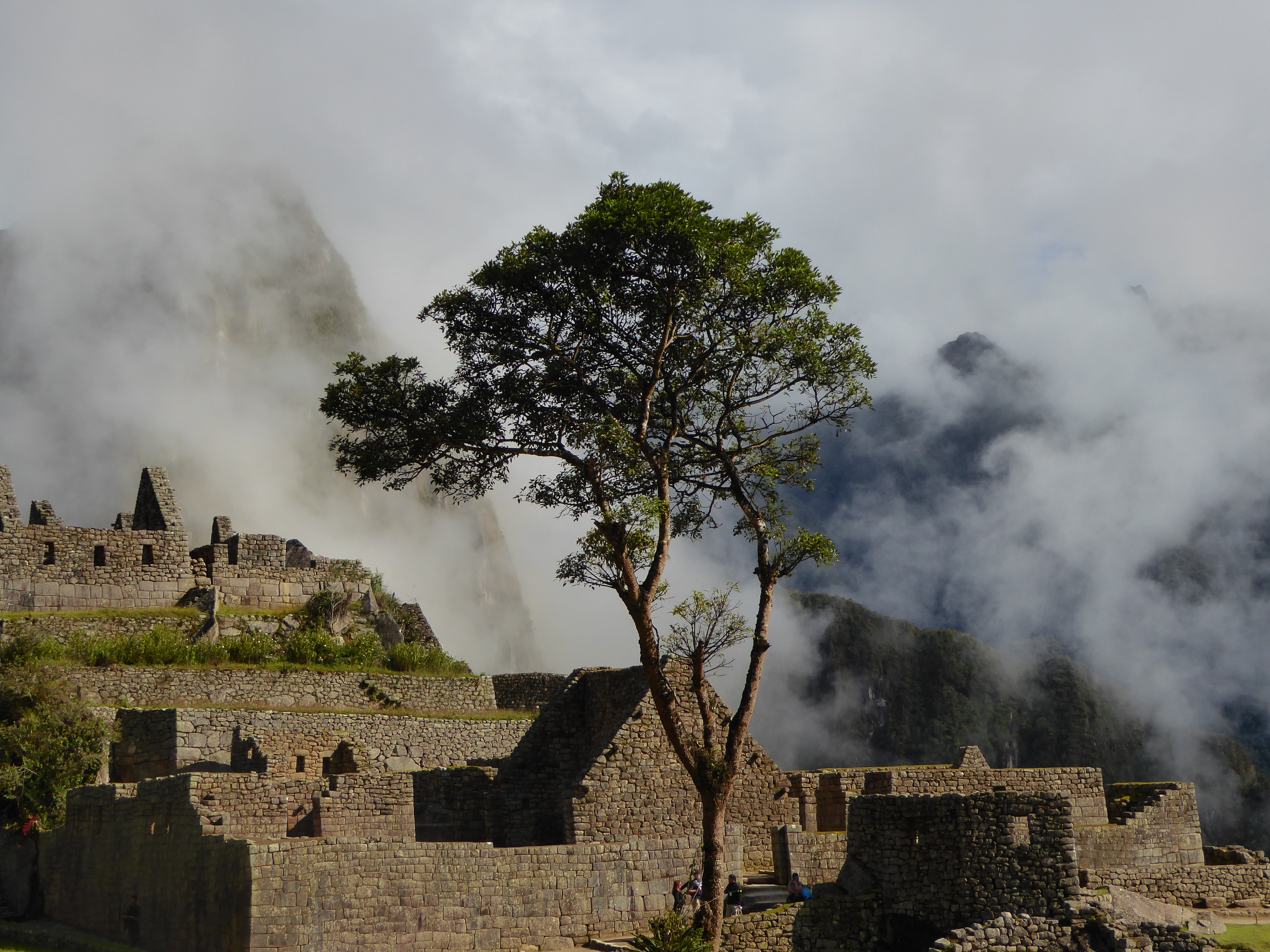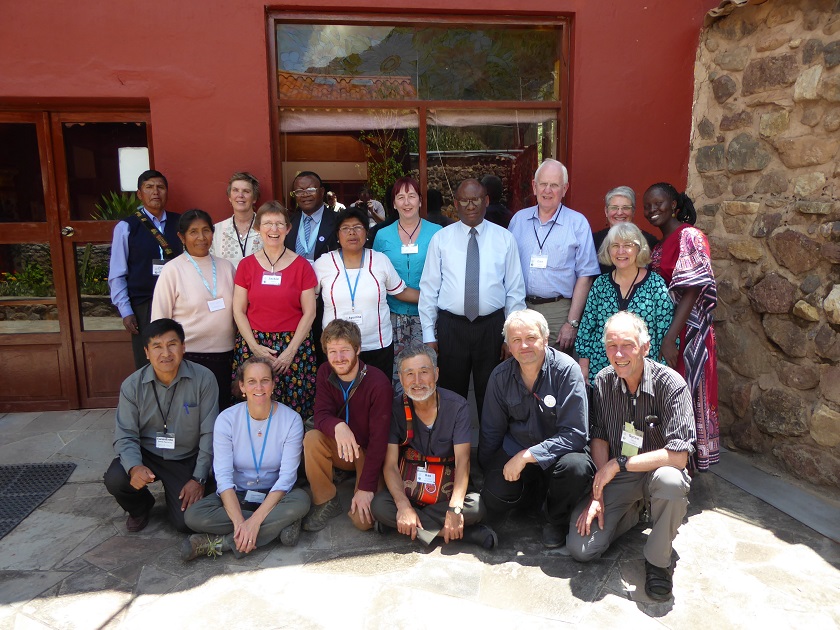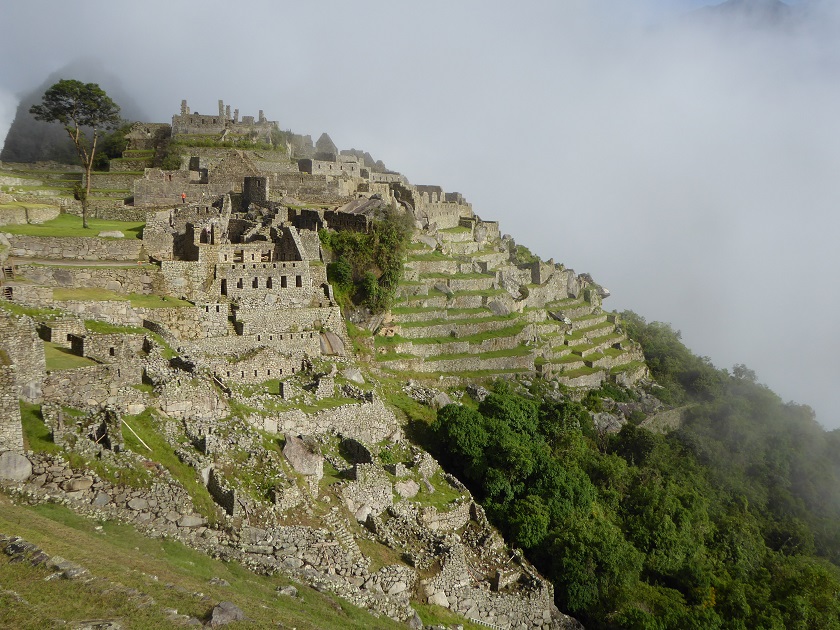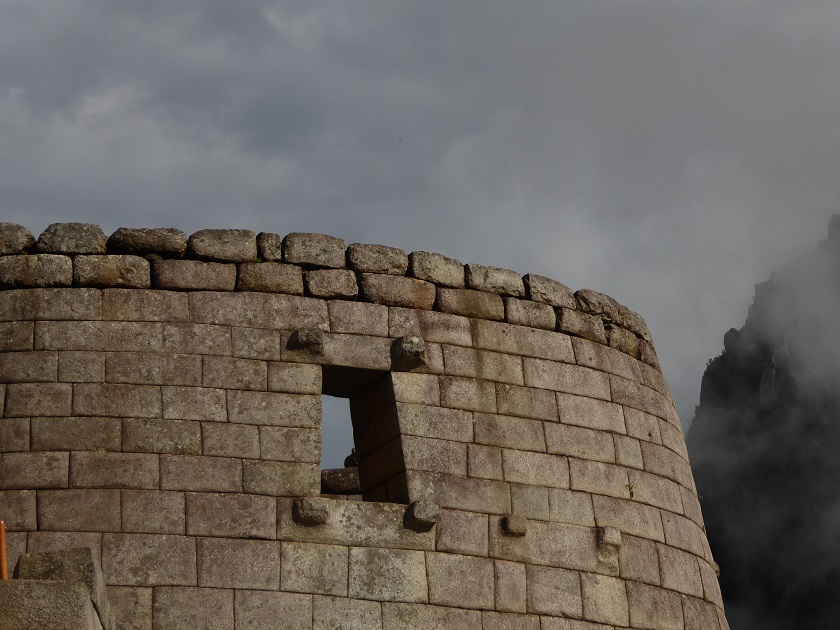
Machu Picchu Lucy Duncan / AFSC
“They tried to bury us. They didn’t know we were seeds.” - Mexican Proverb
I spent the last two weeks of January in Peru attending the Friends World Committee for Consultation world plenary meeting. There were participants from 37 countries and 77 yearly meetings. We met in the Sacred Valley of the Inca and were surrounded by the Andes Mountains. Worshipping there under the care of Bolivian and Peruvian Friends was powerful. Many messages linger, and many conversations as well.
Some of the meal time conversations will stick with me the longest, such as the ones about reclaiming indigeneity and decolonizing Quaker faith. I sat with Scottish Friends who spoke of the independence movement there and how it has transitioned into a cultural movement. Scottish folk are fully recovering their cultural practices, festivals, and traditions. I spoke with Kenyan Friends who have claimed Quaker faith on their own terms and embraced deeper inclusivity and community based on shared economics and mutual care.

A group of us spoke about shifting economic systems and what the Quaker role might be. I told a story about AFSC’s New Mexico program which is training underserved farmers and supporting them to build sustainable livelihoods and reclaim cultural practices while retooling the food system with a co-op at the center. The conversation was wide ranging: we considered the dangers of globalized, extractive corporate capitalism and the need to reclaim indigenous wisdom on the way to deeper change.
I had a fascinating conversation with a Polish Friend who had a challenge: to hold truth and faith at once, to embrace a fully awake theology that doesn’t distract from facing injustice but guides us into the gales with hearts healed, limbs agile, and vision strong.

At the end of our journey I had the blessing of visiting Machu Picchu, the Incan village built high in the Andes. Many Incan sites were covered up with cathedrals or other structures by the Spanish colonists as they dominated spaces and worked to erase the past. The site of Machu Picchu was remote and kept hidden, so it had remained fairly intact, though locals knew of the site.
Two Quechuan farmers, Richarte and Alvarez, were farming a couple of the terraces early in the 20th century. It became well known when Alvarez’s 11-year-old son showed Yale archaeologist Hiram Bingham the main ruins in 1911. (I realize that the common story is that Hiram Bingham discovered Machu Picchu, but even the stories we commonly know – like the cathedrals erected in part to conceal the past - bury the truth.)

Seeing the site, the sophisticated agricultural terraces, the Temple of the Sun, the stone work that required no mortar, moved me. Our guide told us that Incans understood that all is energy and mutually connected. People exchange energy to create visible results for themselves and the earth. He said that Incans didn’t say, “Good morning,” because it didn’t matter how much you produced in a certain amount of time, but how present you were to each task, how much care you took.
Hearing of the interplay of Incan religion with science and seeing architecture and village life that so embedded itself in the landscape made me both deeply sad at what we lost and deeply hopeful. I felt sorrow for all that has been destroyed and covered up, for all that we knew and forgot and buried. I felt excitement for all that indigenous people did once know; that knowledge lives in many people’s hearts and tissues, and my prayer is that it can be recovered.
The destructive, extractive, mechanized view of the world is only 500 years old. We are in the midst of awakening to all that we’ve obliterated, lost, and forgotten, and I think if we can look without flinching, we can take it in. We can begin the process of healing and recovering what indigenous people once knew.
Together we can end the process of burying wisdom and sacrificing whole peoples and landscapes and begin to cultivate the saved seeds of transformation.
FWCC Epistle (English) from Rachel Guaraldi on Vimeo.
Related content
Already, but not yet: Co-creating the beloved community
Quakerism and racism: Reclaiming faith from the wreckage of white supremacy